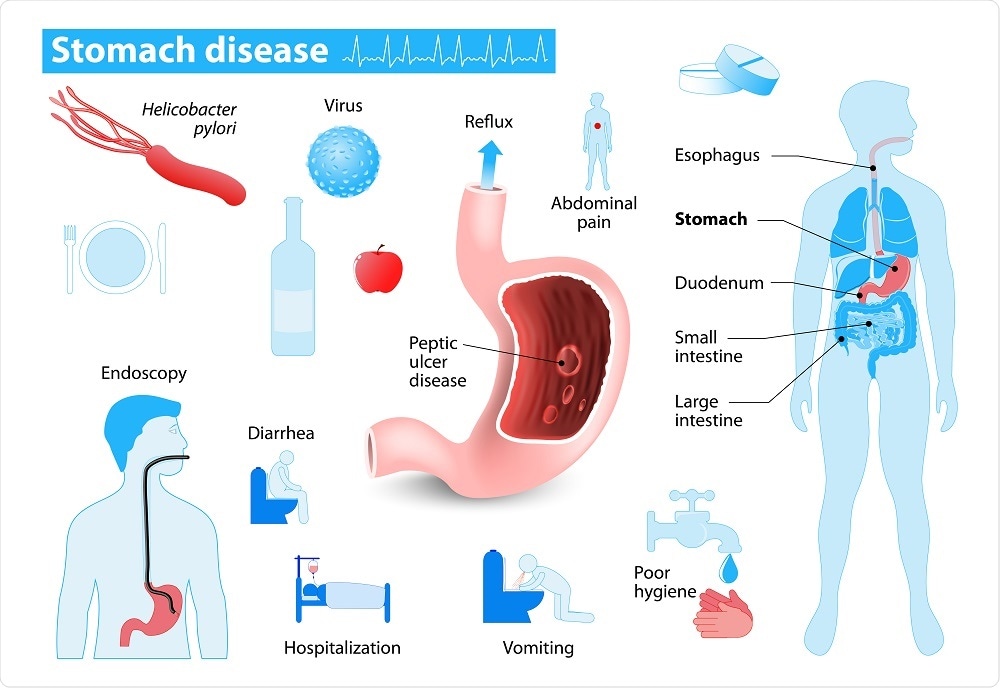

Bleeding in any part of the gastrointestinal tract is GI bleeding. It signifies malfunctioning in any part of the digestive tract. The appearance of blood in stool or vomit accompanied by fatigue, weakness, and pale skin are symptoms of GI bleeding. Causes of GI depend on which part of the digestive tract is affected, lower GI tract or upper GI tract. To be on the safe side and reduce the risk of GI tract ailments, one should opt for a high-fibre diet, avoid food, alcohol, and smoking that increase gastric sensation.
Upper gastrointestinal bleeding results from conditions that affect the upper GI tract. Ulcers in the stomach or duodenum result from erosions of the mucosal lining of the digestive tract. Increased intake of alcohol or drugs burns the stomach lining and reduces its ability to protect itself from acids, thus causing gastritis. Liver disease or cirrhosis may cause swelling of the veins of the oesophagus or stomach.
Lower gastrointestinal bleeding affects organs of the lower GI tract. Strain in bowel movement or constipation causes diverticulosis. People with kidney disease may experience malformations in blood vessels of the GI tract. It affects the large intestine and causes them to bleed. Noncancerous tumours in the GI tract lead to the formation of polyps. Colon polyps bleed and sometimes may become cancerous. Swollen veins around the anus lead to haemorrhoids.
Diagnosis includes physical examination and digital rectal exam. It is to test for visible or microscopic blood from the rectum. Laboratory tests help determine the rate or severity of bleeding. Endoscopy or colonoscopy sometimes are used for diagnostic purposes and many times as therapeutic measures to stop the blood. Treatment varies depending on the intensity of the symptoms and location, whether they affect the upper GI or lower GI tract. Experts may recommend medications in the form of inhibitors to suppress acid.